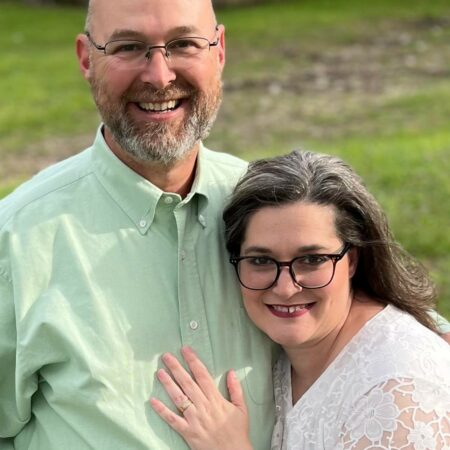
Do I Need an Accredited Homeschool Curriculum?
It’s back-to-school season, and I’ll be honest — I love it. The backpacks, the fresh pencils, the scent of new notebooks. I’m a sucker for pretty pens and crisp notepads with hopeful margins. Even after years of homeschooling, even with our curriculum already chosen, I still feel the siren call of shiny new books and whispered what-ifs.
And if you’re just starting out, that pull can feel even stronger — especially when you start seeing terms like “accredited” homeschool curriculum floating around.
It sounds official. Important. Maybe even required.
But what does it really mean? And does it matter — especially if you’re homeschooling in Texas?
Let’s talk about it.
What Does “Accredited” Actually Mean?
“Accredited” is one of those words that sounds very official — like a golden stamp of approval.
But here’s the truth: accreditation isn’t a guarantee of quality, and it’s not even something homeschoolers are required to care about. In fact, it’s often misunderstood altogether.
Accreditation is a voluntary process that applies to schools, not to individual families. It’s a way for a private or online school to say, “We meet the standards of a particular organization.” That organization — not a government agency — sets the benchmarks and decides what “counts.”
Here’s what most people don’t realize:
– A homeschool curriculum itself is not accredited. It’s the school or program that uses the curriculum that might be.
– These standards are designed for institutions — not the gentle rhythm of a family learning together at the kitchen table.
So if you see a homeschool curriculum advertising that it’s “accredited,” what they often mean is: We are part of (or offer enrollment through) an accredited private school program.
Which is great… if you’re looking to outsource your homeschool to someone else. But if you’re planning to teach your child yourself, you don’t need that layer of oversight.
Who Accredits These Programs — and What Are They Looking For?
Accreditation isn’t handled by the government. It comes from private organizations — like Cognia, ACSI, or NCPSA — that review schools and programs based on their own standards.
Those standards usually focus on things like:
– Curriculum alignment with state standards
– Recordkeeping and grading
– Teacher qualifications
– Testing and assessments
It’s all designed for institutions — schools with classrooms, administrators, and report cards.
These accrediting bodies aren’t elected, public, or parent-driven. They exist because some programs choose to submit to their system — not because they hold any real authority over you as a homeschooler.
Accreditation tells you how a school operates — not how well it will serve your child at home.
What Texas Law Actually Says About Homeschooling
If you’re homeschooling in Texas, you are not required to use an accredited program. You’re not required to register with the state, submit test scores, or report attendance. In fact, you’re legally recognized as a private school — with full authority to choose how and what your child learns.
This freedom comes from the landmark 1994 court case Leeper v. Arlington ISD, which ruled that Texas homeschools qualify as private schools as long as:
– You teach in a bona fide (genuine) manner
– You use a written curriculum
– You cover five subjects: reading, spelling, grammar, math, and good citizenship
That’s it. No licenses. No approval. No outside oversight. And definitely no requirement for accreditation.
Private schools in Texas — including homeschools — are not subject to accreditation laws. It’s completely optional, and most homeschooling families choose not to pursue it because they don’t need to.
You have full authority under Texas law to decide what counts as school. And that freedom is powerful.
Why Accreditation Doesn’t Automatically Mean Better
It’s easy to assume that “accredited” means safer, stronger, or more trustworthy. But when it comes to homeschool curriculum, that’s not always the case.
In reality, accredited programs often come with:
– Higher costs
– Less flexibility
– Standardized pacing that may not fit your child
– Heavy testing or grading requirements
– A one-size-fits-all structure
Some families do well with those systems — especially in the high school years. But many younger learners (and their parents!) find them overwhelming, rigid, or just not a good fit.
Accreditation doesn’t make a curriculum better. It just means it’s been reviewed by a particular organization for a particular purpose.
The real question isn’t “Is it accredited?” It’s: “Does this help my child grow in wonder, wisdom, and confidence?”
When Accreditation *Might* Matter
To be honest? In over 20 years of homeschooling, I’ve never personally known another homeschool family who cared whether a program or curriculum was accredited.
We all did the same thing:
– Taught our kids using the materials that fit them best
– Adjusted when something didn’t work
– Created our own transcripts
– Helped our teens prep for the SAT, ACT, or placement exams
And our kids got into college.
Colleges don’t ask, “Was your curriculum accredited?” They ask, “Can this student succeed here?”
There are a few rare cases where accreditation might matter:
– Re-enrolling in public school midstream
– NCAA athletic eligibility
But even then — there are usually workarounds.
For most families, especially in Texas, accreditation just isn’t necessary.
What I Look for Instead
I’ve never once chosen a homeschool curriculum because it was accredited. Not once.
Instead, I look for the things that actually matter in the day-to-day:
– What does it teach — and how does it teach it?
– Who created it — and what worldview does it reflect?
– Is it adaptable? Flexible? Gentle? Challenging?
– Does it make sense for my child and our rhythm?
– Will it support comprehension — not just completion?
These are the questions that have shaped our homeschool. Not whether someone else thinks a curriculum “counts,” but whether it works — for us.
You don’t need a seal of approval to follow the Holy Spirit’s leading. You don’t need outside validation to watch your child come alive with understanding. And neither do you.
“But What If My Child Falls Behind?”
No grades? No report cards? No formal oversight? What if they fall behind and I don’t even notice?
The truth is — kids fall behind in every system.
Homeschooling is different, not because it guarantees success, but because it gives you the power to respond.
You notice. You slow down. You adjust. You try again. You walk with your child.
That kind of attentiveness isn’t found in a seal — it’s found in relationship.
The difference isn’t accreditation. The difference is you.
A Call to Embrace Your Calling
You don’t need accreditation. You need attunement.
You were chosen to parent this child — with their unique personality, pace, and potential. And in Texas, you’ve been given the freedom to homeschool with intention and peace.
So take a deep breath. Step into your role not as an employee of a system, but as a shepherd of your home.
Use what you know — about your kids, your rhythms, your values. Follow the Holy Spirit’s leading as you choose materials, make plans, and shape this year.
If you’re starting from the very beginning — with a preschooler or kindergartener — you’ll find other gentle resources here to help you along the way. I encourage you to subscribe so you don’t miss the new ones.
And if you’ve recently pulled your kids from public school and you’re feeling lost… my best advice?
Be the tortoise, not the hare. You don’t have to figure it all out this week.
Slow down. Settle in. Reconnect. Heal. Discover joy again.
Remember, gentle mommas — find the wonder and the joy.
God bless you as you walk this road.







